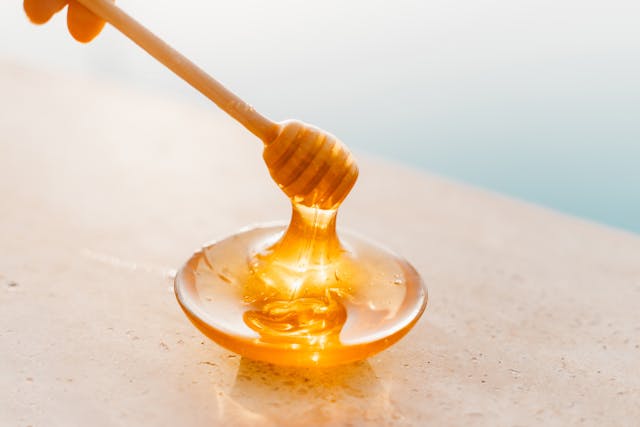Monthly Archives: October 2024
How to Prepare for an Allergy Test
This blog post will guide you through the necessary steps to get ready for your allergy test, from understanding the different types of tests available to managing your medications and lifestyle. When you suspect you may have allergies, an allergy test can provide valuable insights into the specific allergens that trigger your symptoms. To ensure the accuracy and effectiveness of the test, it’s essential to prepare adequately. By following these guidelines, you can maximize the benefits of the test and take control of your allergies.

How to Prepare for an Allergy Test
1. Stop Certain Medications
Consult your allergist about stopping antihistamines and other medications that can interfere with test results. Typically, you should stop taking antihistamines 7-10 days before the test.
2. Discuss Medical History
Provide your allergist with a detailed medical history, including any symptoms, triggers, and past allergic reactions.
3. Avoid Perfumes and Lotions
On the day of the test, avoid using perfumes, lotions, or other skin products that might affect test results.
4. Wear Comfortable Clothing
Wear loose, comfortable clothing that allows easy access to your arms and back, where skin tests are typically performed.
5. Eat Normally
There is usually no need to fast before an allergy test unless instructed otherwise by your doctor.
Preparing for an Allergy Test: Conclusion
Preparing for an allergy test requires careful consideration of various factors, including medications, medical history, skin products, clothing choices, and specific instructions from your allergist. By following these guidelines, you can significantly improve the accuracy and effectiveness of the test, leading to a more accurate diagnosis and effective treatment plan. Remember to communicate openly with your allergist and ask any questions you may have to ensure a successful allergy testing experience.
Are you struggling with allergies? Let Dr. Boyan Hadjiev at Allergy, Asthma and Sinusitis P.C. help. Schedule your appointment today for expert allergy testing and personalized treatment plans.
Allergy, Asthma and Sinusitis P.C
Boyan Hadjiev, MD
30 East 40th Street
New York, NY
212-319-5282
Natural Remedies for Allergy Relief
While modern medicine offers valuable treatments for allergies, many people are turning to natural remedies as a complementary approach. These plant-based options can provide relief from allergy symptoms without the potential side effects of conventional medications. In this blog post, we’ll explore a variety of natural remedies that have been shown to be effective in managing allergies, allowing you to find the best approach for your individual needs.
Natural Remedies for Allergy Relief
1. Local Honey
Consuming local honey may help build immunity to local pollen. Start with a small amount and gradually increase.

2. Saline Nasal Rinse
Using a saline nasal rinse can help clear out allergens from your nasal passages, reducing congestion and irritation.
3. Quercetin
Quercetin, a natural plant flavonoid, can help stabilize mast cells and prevent the release of histamine. Foods rich in quercetin include apples, berries, and onions.
4. Probiotics
Probiotics can help balance the immune system and reduce the severity of allergic reactions. Yogurt, kefir, and fermented foods are good sources.
5. Butterbur
Butterbur is an herb that has been shown to reduce symptoms of hay fever and other allergic reactions. Look for butterbur supplements labeled “PA-free” to ensure they are free of harmful alkaloids.
6. Stinging Nettle
Stinging nettle has natural anti-inflammatory properties that can help reduce allergy symptoms. It can be taken as a tea, tincture, or supplement.
7. Essential Oils
Certain essential oils, such as peppermint, eucalyptus, and lavender, can help alleviate allergy symptoms. Use them in a diffuser or apply them topically (diluted with a carrier oil).

Natural Remedies for Allergy: Conclusion
While natural remedies can offer a valuable complement to traditional allergy treatments, it’s essential to approach them with caution and seek guidance from a qualified allergist. By understanding the potential benefits and limitations of these options, you can make informed decisions about your allergy management. Remember that a personalized approach, combining natural remedies with conventional treatments as needed, can help you find the optimal solution for your individual needs.
For personalized allergy treatment plans and advice on natural remedies, contact Dr. Boyan Hadjiev at Allergy, Asthma and Sinusitis P.C. Our team is here to help you manage your allergies effectively.
Allergy, Asthma and Sinusitis P.C
Boyan Hadjiev, MD
30 East 40th Street
Suite 1200
New York, NY 10016
212-319-5282
Serving all of New York City and the Tri State Area including Zip Codes: Top Allergist NYC Midtown, Chelsea and Clinton: 10001, 10011, 10018, 10019, 10020, 10036 | Gramercy Park and Murray Hill: 10010, 10016, 10017, 10022 | Greenwich Village and Soho: 10012, 10013, 10014 | Lower Manhattan: 10004, 10005, 10006, 10007, 10038, 10280 | Lower East Side: 10002, 10003, 10009 | Upper East Side: 10021, 10028, 10044, 10128 | Upper West Side: 10023, 10024, 10025
